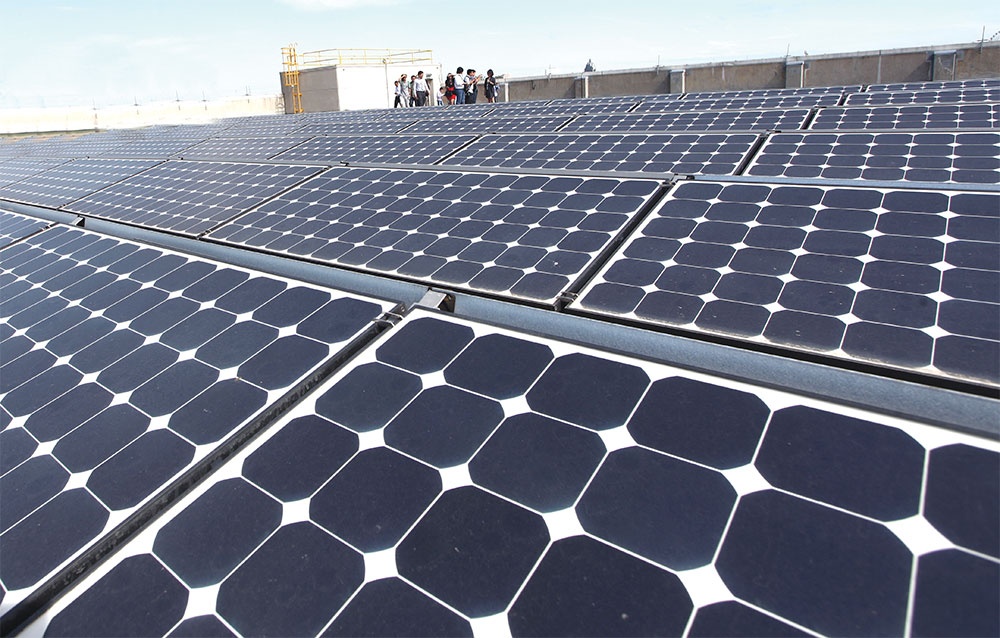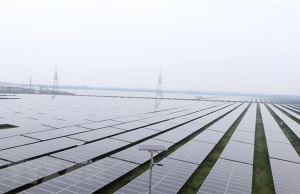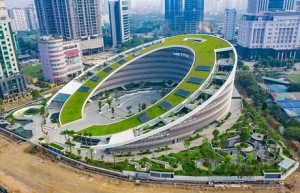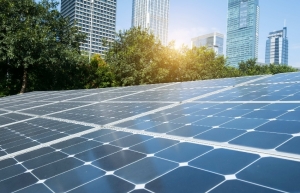Overseas investors boosting rooftop solar presence at IZs
Indian group Hero Future Energies (HFE) Pvt., Ltd., the renewable energy arm of Hero Group, is busy working with its Vietnam branch to develop plans for renewable energy projects after receiving $450 million from investment firm KKR.
The funding will position Hero for continued growth and support its efforts to expand renewable energy capacity and capabilities across solar, wind, battery storage, and green hydrogen.
In Asia-Pacific, KKR sees renewables as core to its infrastructure strategy and seeks to capture significant regional opportunities. Earlier this year, it launched Aster Renewable Energy, a platform to build and operate solar, wind, and energy storage projects in Taiwan and Vietnam. It will also expand to other regional markets.
Tran Dang Khoi, Vietnam country manager of HFE, told VIR, “We will prioritise divesting this investment on traditional and emerging markets. The group will especially focus on the rooftop solar power market in Vietnam.”
HFE’s investment is to meet the industrial zone (IZ) developers’ increasing demand for building infrastructure facilities in collaboration with installing rooftop solar power to serve the decarbonisation target.
 |
| The installation of solar rooftop panels can severely cut CO2 output for companies, Photo: Le Toan |
Ho Chi Minh City Industrial and Export Processing Zones Management Authority calculated that when reaching the target of 1,000MWp of rooftop solar power for more than 1,000 enterprises in 2020-2024, electricity consumption would be reduced by 10-15 per cent, equivalent to 23 million tonnes of CO2. Moreover, according to a study by the University of California, solar panels also help reduce heat absorption by 38 per cent.
Maintaining decarbonisation is an advantage for exporters because they can ensure urban energy security, deemed an important criterion for enterprises to achieve a green certificate through LEED, Lotus, EDGE or others, which can then bring a competitive advantage. Some industries, such as wood, furniture, food, and building materials, must have such a certificate before exporting to Japan, the United States, and Europe.
“The EU announced plans to apply a carbon border tax on imported goods from 2026 with a tentative tax of $70 per tonne per year. Preparation for decarbonisation of tenants in IZs will be an advantage for exporters once the policy comes into effect,” Khoi said.
Le Trung Kien, director of Haiphong Economic Zones Management Authority, said that the northern port city currently has 15 IZs, a hub for over 600 investors with a total investment capital of more than $34 billion. The demand for power usage is large, so having investment projects in power sectors, especially renewable energy, is important.
“Haiphong wants to develop IZs meeting green and ecosystem criteria. Thus the city pays attention to using environmentally friendly energy sources,” Kien said.
Nguyen Thanh Phuong, general director of Sao Do Group, said that approximately 10 investors in Nam Dinh Vu IZ in Haiphong were willing to install rooftop solar panel systems and sign a contract to buy renewable energy. Trang Due and Nam Cau Kien are also installing rooftop solar panel systems for their facilities.
French company TotalEnergies is installing 280,000 square metres of rooftop solar panels for all of KCN Vietnam’s 250-hectare industrial properties nationwide. Once the panels are installed across existing properties, the annual output will be 51GW hours, reducing CO2 by over 23,000 tonnes.
Sumitomo Corporation, the Japanese operator of Thang Long Industrial Park (IP) in Hanoi and Thang Long IP III in the northern province of Vinh Phuc, also plans to achieve a total installed capacity of approximately 100MW at the group’s three IPs in Vietnam to meet their park tenants’ demands for green energy.
Along with bilateral relationships between IZ developers and energy companies to install rooftop solar panel systems, there is a 3-party cooperation model in Vietnam, which combines an IZ management board, an energy company, and a bank/investment fund. This model is now common seen in many nations.
Accordingly, the management side does not have to invest capital but can buy electricity at a cheaper price with a stable, clean power source; it can also own a solar power system after the contract term and achieve the relevant green certificates.
In general, the room for this segment is large. The Vietnam IP Infrastructure Development Report published in the second quarter of 2022 shows that about 8 per cent of IZs have built solar electricity systems. Construction projects and renewable power factories are being built at a steady frequency every year, and more and more factories are installing rooftop solar panels.
 | Vietnam leads transition to clean energy in Southeast Asia Vietnam is leading the transition to clean energy in Southeast Asia and is a bright spot on an otherwise soot-black map, according to an article published recently on The Economist. |
 | Energy-efficient buildings on the rise in Vietnam Developing energy-efficient buildings is an inevitable trend for Vietnam to achieve its environmental objectives. |
 | Solar self-users seeking parity A chasm between mechanisms and inconstant guidelines in localities is making it difficult for developers to install rooftop solar power for self-use. |
What the stars mean:
★ Poor ★ ★ Promising ★★★ Good ★★★★ Very good ★★★★★ Exceptional
Related Contents
Latest News
More News
- Bac Ai Pumped Storage Hydropower Plant to enter peak construction phase (January 27, 2026 | 08:00)
- ASEAN could scale up sustainable aviation fuel by 2050 (January 24, 2026 | 10:19)
- 64,000 hectares of sea allocated for offshore wind surveys (January 22, 2026 | 20:23)
- EVN secures financing for Quang Trach II LNG power plant (January 17, 2026 | 15:55)
- PC1 teams up with DENZAI on regional wind projects (January 16, 2026 | 21:18)
- Innovation and ESG practices drive green transition in the digital era (January 16, 2026 | 16:51)
- Bac Ai hydropower works stay on track despite holiday period (January 16, 2026 | 16:19)
- Fugro extends MoU with PTSC G&S to support offshore wind growth (January 14, 2026 | 15:59)
- Pacifico Energy starts commercial operations at Sunpro Wind Farm in Mekong Delta (January 12, 2026 | 14:01)
- Honda launches electric two-wheeler, expands charging infrastructure (January 12, 2026 | 14:00)

 Tag:
Tag:




















 Mobile Version
Mobile Version